By Kathleen Pickering – http://www.kathleenpickering.com/
For this author, conducting on-site research on a work of fiction to hone the story into a living, breathing event is one of the most exciting aspects of writing.
Now, I know this isn’t always possible for a writer, but when it is, oh, I don’t know, can you say, tax write-off? It is a lucky day when one can take a trip for his/her profession and find business is a pleasure.
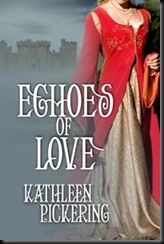 For example, when I wrote ECHOES OF LOVE, a paranormal romance hopping from Manhattan to London, I just had to fly to England. After all, the last thing I wanted was for a local Brit to let me know my facts were wrong. Major story killer!
For example, when I wrote ECHOES OF LOVE, a paranormal romance hopping from Manhattan to London, I just had to fly to England. After all, the last thing I wanted was for a local Brit to let me know my facts were wrong. Major story killer!
I wrote a pick-pocket scene when my character, Melissa, stepped off the curb in Hastings. Now, you or I would have thought stepping from a curb would be a normal, every day event. However, the curbs on the main street in Hastings are a foot high! Melissa would have fallen, not stepped. Had I not been there to discover this little fact, I could have hurt my character and my credibility!
Also, how was I to sneak Melissa past the closed oak doors and rock walls of Battle Abbey to crash a concert in the dead of night, if I had not done so myself? (Oops! Did I say that?)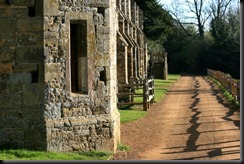 Truth be told, I did sneak in! I and a cohort (Jane had no idea I was getting her into mischief!) found a path leading through the woods to the high cliff behind the Abbey. This cliff overlooked the valley where the Battle of Hastings was fought. And to my surprise, not only did I discover a real-life gypsy wagon camped in the valley (which I promptly used in the story) but, I found the rear of the Abbey un-walled and easily penetrable. All of this worked beautifully into Melissa’s adventure.
Truth be told, I did sneak in! I and a cohort (Jane had no idea I was getting her into mischief!) found a path leading through the woods to the high cliff behind the Abbey. This cliff overlooked the valley where the Battle of Hastings was fought. And to my surprise, not only did I discover a real-life gypsy wagon camped in the valley (which I promptly used in the story) but, I found the rear of the Abbey un-walled and easily penetrable. All of this worked beautifully into Melissa’s adventure.
On another occasion, my husband, some friends and I took a trip to the Bahamas which resulted in the contemporary romance I just sold to Harlequin (WHERE IT BEGAN – Jan. 2012). 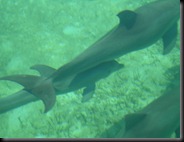 Sailing the waters, snorkeling the reefs and meeting a strange and unsavory local resident helped craft the book. The story ideas just kept coming!
Sailing the waters, snorkeling the reefs and meeting a strange and unsavory local resident helped craft the book. The story ideas just kept coming!
My craving for facts sent me to San Francisco for MYTHOLOGICAL SAM-THE CALL, then brought me to New York City last September and just recently under the guise of attending Thriller Fest—oh, wait, I did attend for a day! Cruising The Big Apple, I found places, artifacts and images such as these to weave into the second book in progress in the Mythological Sam series, THE SHIFT. I’m not even going to tell you (yet) how I’m using these photos!
Ahh. The joy of writing and research all wrapped up in real life. So, tell me. I know you can’t go kill someone, really. (Murderer-celebrities excluded.) What works best for you when researching your novels?

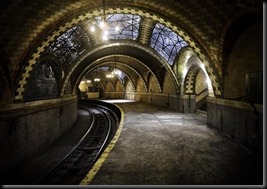
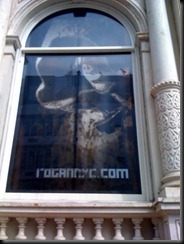
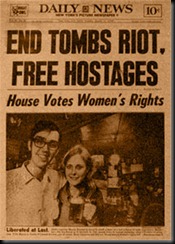

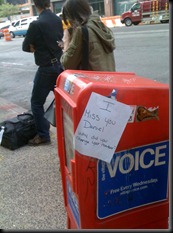
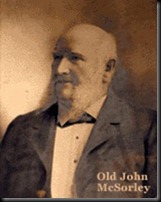

![102.86crowds[1] 102.86crowds[1]](https://killzoneblog.com/wp-content/uploads/2011/07/102.86crowds-25255B1-25255D_thumb-25255B1-25255D.jpg)

Since I write historicals, I do a lot of book reading first then, where possible, try to physically visit the site, which isn’t always possible.
The only problem with historicals is that a site visit can be misleading. Sometimes the land can be vastly different than it was 150 years ago. But you learn to pull all the pieces together. It’s fun.
BK Jackson
It’s true that sites change, but when you’re lucky, there’s a wonderful guide to an area who can paint the picture–allow you to do a digital alteration in your head–that will bring you back. I have friends who write incredibly well from a desk–and friends who make a place come alive, and the reader see it, because travel and being there is so important to them.
I love doing on-site research, and will seldom write about a locale I can’t visit. But years ago I read about some famous writer (I’ve been racking my brain trying to remember who it was) who had every issue of National Geographic, and did his research by reading them. Didn’t hurt his writing a bit.
Kathryn–National Geographic! That confirms the old addage, a picture paints a thousand words.
Heather–thanks for stopping by! I already know how you conduct research so VERY effectively! 🙂
BK: I especially love the research challenge for historicals. The need for accuracy truly plants you in the period. Don’t you just love our jobs?
I don’t have the money or time off work to do much actual physical research. On the other hand all my books so far have been set in fictional towns so I can do whatever I want, lol
I do use Google images alot so at least I can see pics of places to inspire my fictional town and help with desciptions.
Kathy, on-site research is great fun when it’s possible. Many locations in my thrillers are set in places that I can’t visit even if I wanted to, so Internet research along with appropriate travel guides and travel blogs help. A large portion of THE 731 LEGACY was set in North Korea. I had to rely totally on first-hand written accounts to add the touch of realism to the story. Scenes inside the Kremlin, Vatican, and obscure East European locations also came from travel and blog posts. A large portion of my latest, THE PHOENIX APOSTLES, takes place in the Paris catacombs. Again, first-hand written accounts from people who’ve been there help a great deal.
Kathryn, I met Harold King, a thriller writer from the ’70s, once at a writers conference. His books were set in exotic locations all over the world. When asked how much he travels to research is books he said, “None. If National Geographic didn’t go there, I didn’t write about it.”
Kristin–Debbie Macomber does the same, and look at her success! It’s a tribute to your imagination.
Joe–I know your writing and applaud your ability to transform your desk-side research into realism, especially when dealing with exotic locales. Your stories rock!
Dave– there’s that reference to National Geographic again. I’m going to get myself a subscription!
Onsite research is the best, but since Iran, Bosnia-Herzegovina, and Sierra Leone proved a bit difficult to get to I relied on google maps, wikipedia, and tourism sites.
That and involuntary psychic remote viewing, which would explain why I tend to wake up tired sometimes.
I do agree. When you are able to see the site, you have a leg up on your credibility. Plus you get to know and hear the locals talk.
And it is great fun!!
Hi Piks – My books are all set in familiar places – South Florida and New England – so haven’t needed much research. My last book was set in Plymouth County, Mass. which gave me a good excuse to go “home” and check out some local details.
I wish I had a dollar for every dollar I spent on research trips I have written off. One of the best perks of writing.
If I can visit a place I’m writing about, I usually contact tourism and conventions bureaus and chambers of commerce for any booklets or brochures they have.
Kathy, I couldn’t agree more. Traveling is the best form of research. I have books set in Belarus where I used to travel for business, in France where I went for fun, in Greece where I visited a few times, and in Egypt where I cruised along the Nile River last year. You can’t beat visiting your setting for accurate details.
http://www.monarisk.com
How nice to see several of my fellow Florida Romance Writers stopping by. YAY!! I know how much fun you ladies have researching your excellent works. Thanks for commenting!
Basil– I woke up exhausted this morning. I guess last night’s psychic remote venture took it’s toll on me. That explains so much! (And I’ll bet you thought I’d think your comment was . . . um . . . out there!) 🙂
John, I agree. $$ well spent for double the satisfaction. There’s a story around every corner. I just can’t turn them fast enough.
Carol–excellent suggestions! Thanks for commenting!
I agree with you that on-site research is priceless and helps the story write itself…but when I can’t be there physically, I try to immerse myself in books, movies, music, people, internet and anything that will bring the place to life for me and then I let the characters focus on the details that are important to them. Either way, I’m not sure what I would do without the internet and Google Earth. Even when writing a scene in a place I frequent (like South Beach) it helps paint a clearer image at that moment that helps words flow.
Those are cool pix. I agree that on-site research can lead to many new ideas and be inspirational…not to mention the tax write-off!